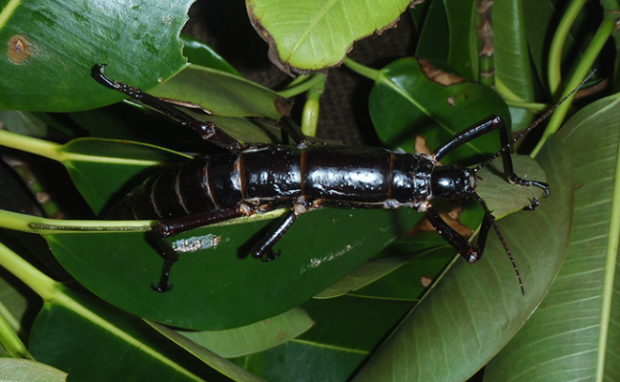Rarest insect escapes near-extinction
Australia is saving a unique insect species only found on Lord Howe Island, the namesake Lord Howe Island stick insects or “tree lobsters.” ScienceAlert says only 20 to 30 of Dryococelus australis remains at the near-vertical volcanic outcrop called Ball’s Pyramid. That is why multiple zoos are breeding more and preparing them to return to their natural habitat.
It is easy to feel dreary amidst the constant climate change warnings, but we save the environment in many ways. For example, we have been preserving more endangered species like the Lord Howe Island stick insects. It proves we are trying to preserve nature, and I’ll show more examples later!
This article will share more details about the world’s rarest insect. Later, I will discuss another rare species under our protection.
What do we know about the rarest insect?

The first thing most would notice about the tree lobster is it bears a person’s name. The Lord Howe Island Tourism Association says Lieutenant Henry Lidgbird Ball, commander of the “Supply” First Fleet ship, discovered it in 1788.
Ball named the inhabited island after British Admiral Richard Howe and the sea stack to the south after himself. More importantly, it is home to a unique insect called the tree lobster.
As its name suggests, it looks like the taste sea crustacean, albeit smaller. It only eats one food plant species, the Melaleuca howeana or the tea tree.
They used to cluster on the branches of wooly tea trees (Leptospermum lanigerum) and Moreton Bay figs (Ficus macrophylla). Unfortunately, a shipwreck released many rats that decimated most in 1918.
They also eliminated other native species, such as two plants, five birds, and 12 other invertebrates. Since 1920, Australia has not recorded further sightings, so it declared the Lord Howe stick insect extinct in 1986.
Fortunately, people found a few survivors on a volcanic sea stack 23 kilometers (14.2 miles) from the island. ScienceAlert says it likely survived due to parthenogenic reproduction.
You may also like: Increasing self-pollination a sign of climate change
ScienceDirect says it involves eggs developing into embryos without sperm fertilization. In 2003, a rescue team rescued four black stick insects for a breeding program.
San Diego, Melbourne, and Bristol Zoos established a captive population in the thousands. In 2019, conservationists deployed rat-detecting dogs to eliminate the invasive rat species. The zoos hope to return the tree lobsters to their island home once the rats are gone.
“This species was once a major converter of vegetative matter and played an important function in the island’s ecology as an ecosystem engineer, increasing the richness and speeding up the recycling of nutrients,” says NSW state government ecologist Nicholas Carlile.
Another rare animal specimen
Besides the rarest insect, we also discovered the rarest alligator. It has leucism, which manifests due to defects in specific pigment-producing cells.
Despite similar appearances, they are rarer than albino alligators. Also, albino alligators are pale yellow with pink eyes; leucistic ones have mostly white scales, with a few regular ones here and there.
You may also like: Zoom Escaper helps you leave video calls
“For the first time since a nest of leucistic alligators was discovered in the swamps of Louisiana 36 years ago, we have the first birth of a solid white alligator ever recorded from those original alligators,” reads a press release from Gatorland amusement park.
“This is beyond rare; it is absolutely extraordinary and the first one in the world, it added.” Today, there are only seven known living leucistic alligators in the world.
The establishment has one of the few specimens since finding a nest 36 years ago. It is a solid white hatchling with piercing crystal blue eyes that grows into a white leucistic alligator.
Conclusion
The world’s rarest insect escapes extinction due to Australia’s efforts. Locals say it is a sign that their ecosystems are recovering.
“What is unfolding is an ecological renaissance,” Lord Howe Island resident Hank Bower told The Sydney Morning Herald. “Everything is blooming; all the plants are flowering, and we are seeing a carpet of seedlings.”
Further conservation efforts could bring similar results in other parts of the world. Learn more about other animals and digital tips at Inquirer Tech.